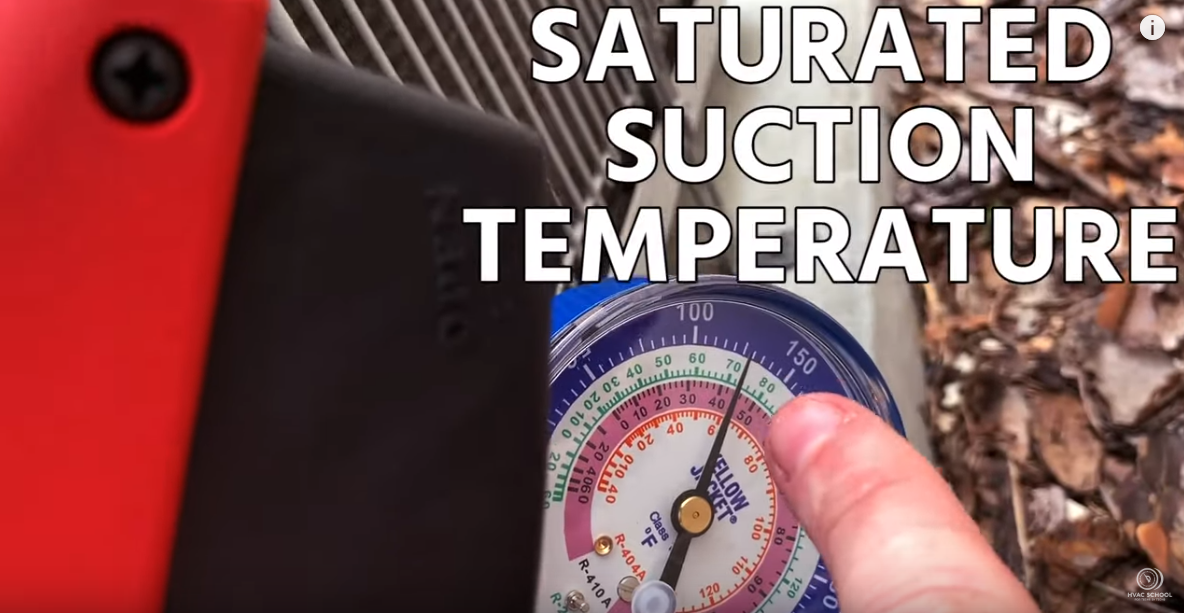How to Find Target Superheat
October 15, 2019


You can find your target superheat using charts, such as manufacturer-provided ones or universal ones from sources like TruTech Tools or the HVAC School app. You need the outdoor dry-bulb temperature and the indoor wet-bulb temperature; the indoor wet-bulb temperature gives you a better idea of the total indoor load on the coil. To measure wet-bulb temperature, you need to use a high-quality digital hygrometer or psychrometer in the return.
You will want to charge a system until you reach the target superheat at the compressor inlet (also known as the total superheat or compressor superheat in that location). The system should be stabilized while you’re charging. If you realize that you have a superheat value that is too high, you are likely dealing with an undercharged system and need to add more refrigerant until the superheat drops to the target. If your superheat is lower than the target, then you need to recover some refrigerant slowly and carefully.
As the wet-bulb temperature increases, the target superheat also increases in fixed orifice systems. That’s because the superheat signifies how much refrigerant we’re feeding that evaporator coil, and our target superheat will vary as the load varies. Most of all, we want to avoid excessively low or zero superheat; when we don’t have superheat, the system is flooding the compressor with liquid refrigerant. However, many heat pumps with fixed orifices also have accumulators to help prevent flooding.
If you look at a target superheat chart and see a dash at the intersection of your indoor wet-bulb and outdoor dry-bulb temperature, that means that the system will have no superheat under those conditions; the system was not designed to run under those conditions. We want to run lower superheats when possible because the system capacity increases, but superheats that are too low put us in the danger zone and make compressor flooding possible.
Comments
Great info. as always. Thanks Bryan.
Great info. as always. Thanks Bryan.
Thanks to my father who told me regarding this webpage, this weblog is really amazing.
Thanks to my father who told me regarding this webpage, this weblog is really amazing.
To leave a comment, you need to log in.
Log In